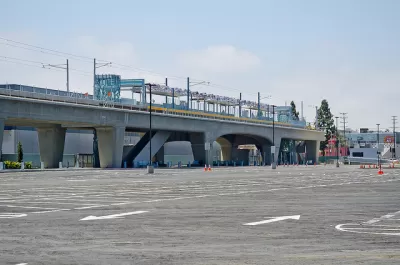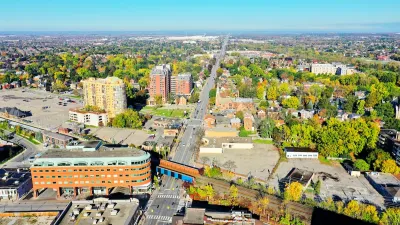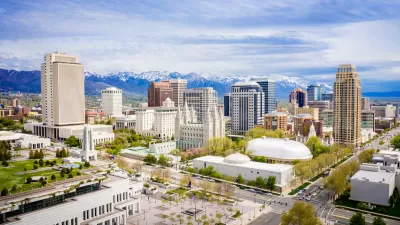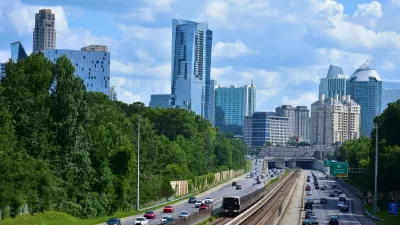As more attention is paid to the struggles of U.S. public transit systems, some factors are getting less attention than others.

Paul Comfort, VP of Business Development for the Trapeze Group, pens an opinion piece for the Eno Center for Transportation in which he lists five hidden flaws of public transit systems. The list could also be called five underreported problems in need of reform if we want to save public transit in this country.
Here is the list, with more detail included in the article.
- There is not enough individual accountability for performance. Comfort cites a fairly surprising specific example, but also says that many positions throughout public transit systems lack individual accountability.
- Administrative departments gain too much influence over operations. "Too often – out of undue fear of risk – leaders and new ideas for success and achievement are neutered by bureaucratic responses," Comfort writes.
- Focus is on the wrong key performance indicators. Here Comfort take umbrage with the continued focus on ridership as the key indicator of public transit success. "If ridership is the only measurement of success for public transportation, then we are all failing." Comfort says transit systems should focus on performance indicators they can directly control, like safety and reliability, for instance.
- There is expensive outsourcing of staff positions due to established position caps. Politicians think position caps shrink the size of government, and reduce spending as a result.Comfort argues that position caps "often lead agency managers to hire for the positions they need through contracts with staffing agencies or architectural and engineering (A&E) firms."
- Paratransit focuses on rules, not people. This point is specifically about how paratransit serves people with disabilities, but the points about obsessing over the Americans With Disabilities Act, even when the law doesn't require it, might apply more broadly
FULL STORY: Guest Op-Ed: Five Hidden Flaws in Most Transit Systems

Alabama: Trump Terminates Settlements for Black Communities Harmed By Raw Sewage
Trump deemed the landmark civil rights agreement “illegal DEI and environmental justice policy.”

Study: Maui’s Plan to Convert Vacation Rentals to Long-Term Housing Could Cause Nearly $1 Billion Economic Loss
The plan would reduce visitor accommodation by 25% resulting in 1,900 jobs lost.

Planetizen Federal Action Tracker
A weekly monitor of how Trump’s orders and actions are impacting planners and planning in America.

Wind Energy on the Rise Despite Federal Policy Reversal
The Trump administration is revoking federal support for renewable energy, but demand for new projects continues unabated.

Passengers Flock to Caltrain After Electrification
The new electric trains are running faster and more reliably, leading to strong ridership growth on the Bay Area rail system.

Texas Churches Rally Behind ‘Yes in God’s Back Yard’ Legislation
Religious leaders want the state to reduce zoning regulations to streamline leasing church-owned land to housing developers.
Urban Design for Planners 1: Software Tools
This six-course series explores essential urban design concepts using open source software and equips planners with the tools they need to participate fully in the urban design process.
Planning for Universal Design
Learn the tools for implementing Universal Design in planning regulations.
Caltrans
Smith Gee Studio
Institute for Housing and Urban Development Studies (IHS)
City of Grandview
Harvard GSD Executive Education
Toledo-Lucas County Plan Commissions
Salt Lake City
NYU Wagner Graduate School of Public Service





























